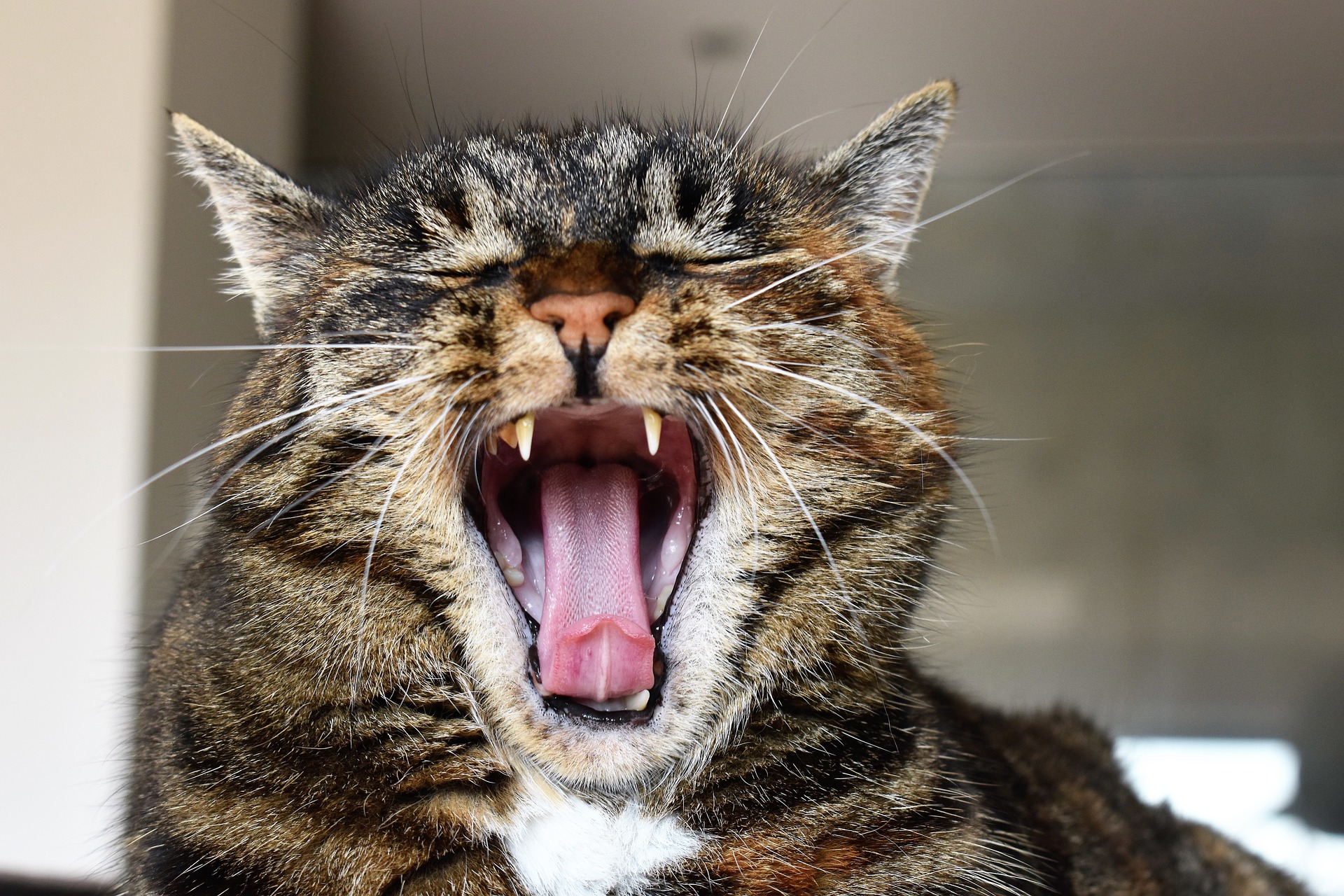Your pets can’t tell you directly when they are suffering from a toothache or other types of pain, however, there may be subtle cues they provide to let you know it’s time to contact your veterinarian to schedule an exam!
Bad Breath: The odour is a by-product of the bacterial metabolic process. In pets with periodontal disease, there is more bacteria in the mouth, so the odour increases. “Doggy breath” or “tuna breath” is not normal and needs to be evaluated.
Altered Behaviour: Chewing on one side of the mouth, dropping food, running away from the food dish, crying when yawning, hiding, not grooming themselves and acting “grumpy” are all signs of dental pain. You know your pet better than anyone, so look for abnormal behaviours.
Bleeding: Bleeding from the mouth is usually due to periodontal disease. but it could also be evidence of fractured teeth, lacerations or ulcers on the tongue or gum tissue or the presence of an oral mass. Look for thick, ropey saliva, spots of blood found on toys or beds, or drops of blood in the water or food dish. If the periodontal disease is severe enough, you may notice bleeding from the nose or bloody discharge when your pet sneezes.
No signs at all: Dogs, cats and other companion animals, such as rabbits, rarely show obvious signs of dental pain. This is a survival mechanism, an instinctual behaviour that our domesticated animals have in common with their wild ancestors.
Because your pet may not demonstrate obvious signs of discomfort, it’s important for your pet to visit your veterinarian on a regular basis. During their physical, your veterinarian will exam your pet from the tip of their nose to the tip of their tail, including their oral cavity (mouth). This will help to catch developing oral care issues early, and monitor existing ones. This will also be an excellent opportunity for your veterinarian to review home oral care, and, if necessary, in-clinic dental procedures.
Don’t let your pets suffer in silence. Book your dental exam today!

